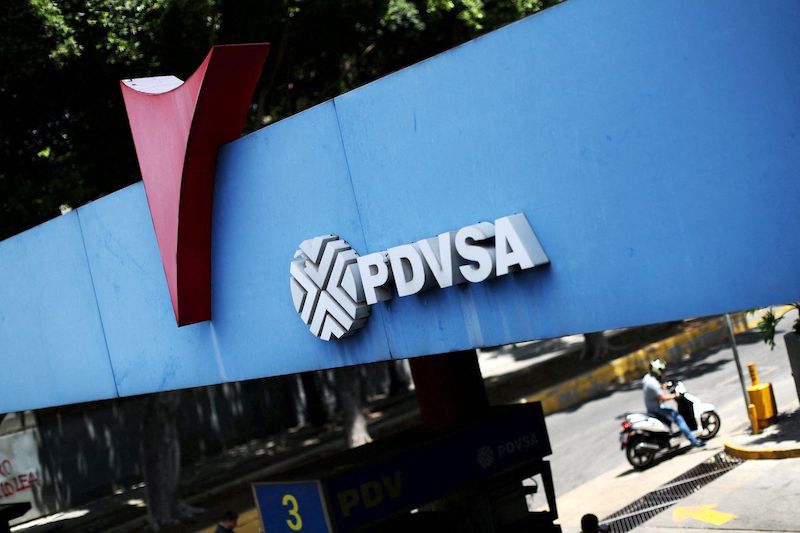A sanctions-busting Venezuela-owned supertanker that has had mechanical problems since January is transferring its 2-million-barrel cargo of heavy crude oil to vessels in Asia.
The very large crude carrier Maximo Gorki left Venezuela in November amid an export push designed to generate funds for cash-strapped state oil company Petróleos de Venezuela (PDVSA), which has been under US trading sanctions since 2019.
Ageing infrastructure problems, including a lack of oil storage and vessels, frequent refinery outages and export port congestion, are undermining PDVSA’s increased oil production, impeding efforts to boost revenues.
The carrier could not complete its cargo delivery on time after delays caused by mechanical problems, forcing PDVSA to replace its crew and look for new vessels able to receive the transferred cargo at sea, according to one of the sources.
The Maximo Gorky, known as the Ayacucho before it was transferred to a Russian flag, was reported near Singapore in late January after crossing the Lombok Strait. It then switched its transponder off, according to Refinitiv Eikon tracking data.
US Aware of Trouble
A person familiar with the matter in Washington said US authorities have been tracking the tanker, as they do with all sanctioned vessels, and was aware it was in trouble and seeking to transfer its cargo.
The Maximo Gorki’s heavy crude oil cargo was to be delivered to an undisclosed customer under a cost-insurance-freight (CIF) contract that places responsibility for most costs and liabilities on seller PDVSA until the shipment arrives at destination.
PDVSA in 2020 began offering to transport its own oil to help customers who struggled to hire vessels to carry the country’s oil due to the US sanctions.
“It is a big gamble to do CIF trips like this for selling sanctioned oil,” a former crew member of a Venezuela-owned tanker said.
“Vessels often fail to complete the deliveries, mechanical problems can emerge and the crew is in the meantime waiting for months at sea.”
PDVSA and the tanker’s operator, subsidiary PDV Marina, did not reply to a request for comment on the ship’s status or problems that caused it to become stranded. Its owner, state maritime authority INEA, also declined to comment.
• Reuters with additional editing by George Russell.
ALSO on AF:
Ukraine Crisis May Hit Asian Nations Relying on Russian Oil, Gas
Refinery shutdowns blamed for China’s Saudi oil imports plunge
Venezuela wins grace period on China oil-for-loan deals: sources
PetroChina nabs three Venezuela oil tankers
























